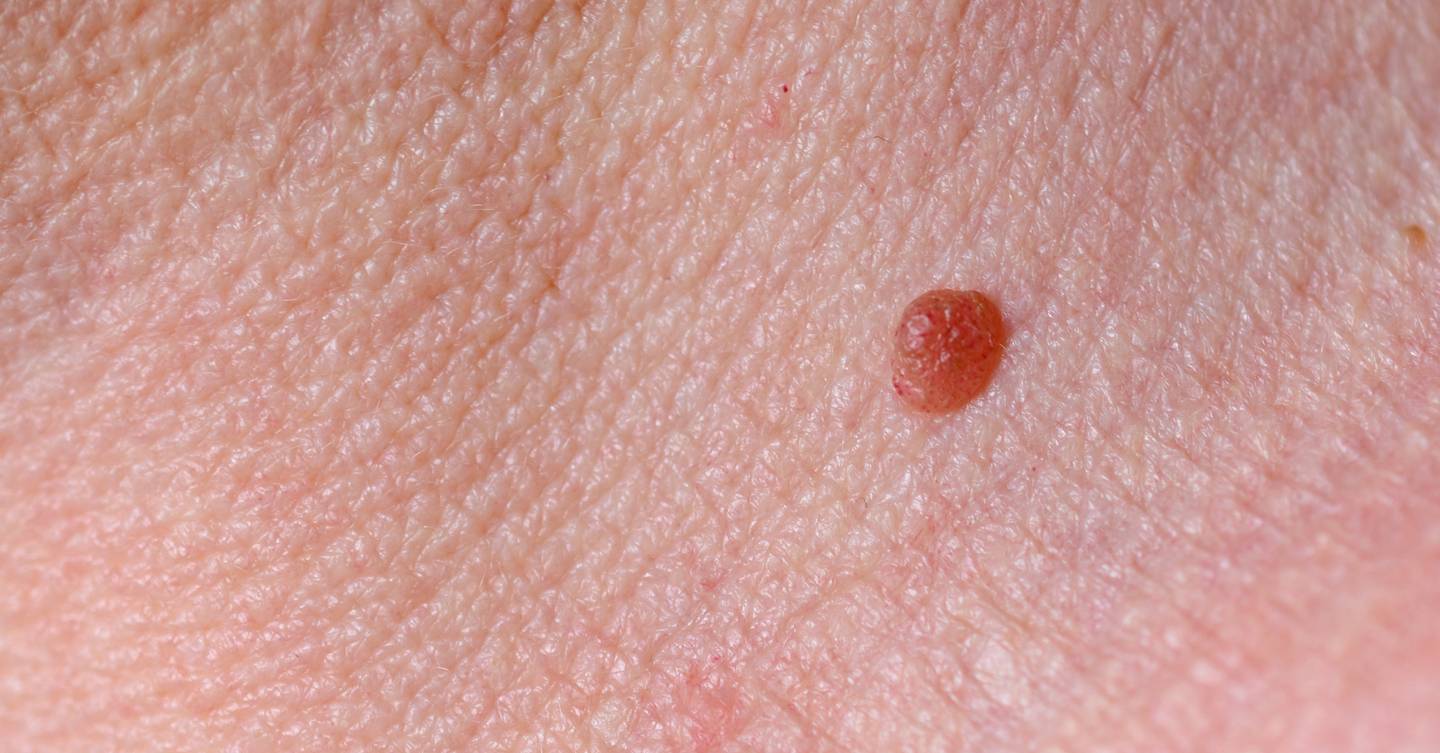Skin tags are very common, will probably happen to most of us at some point and are harmless. Even so, it’s worth being clued up on what they are, what causes them and how to get rid of them. It’s also worth being sure that what you’re dealing with is actually a skin tag, and not something else.
Before you pick up the floss and jettison them off yourself (floss cuts off the blood supply so, in theory, they fall off on their own), we asked Dr Catherine Borysiewicz, Consultant Dermatologist at the Cadogan Clinic for her professional take.
“Skin tags are very common skin lesions. They are soft fleshy growths that appear to hang off the skin. They tend to occur more commonly as skin ages and are found in skin folds around the neck, in armpits or groins.”
“We don’t know what causes them, but it may be a consequence of skin rubbing together along with higher levels of growth factor. They are more common if you are overweight and if you suffer from diabetes. Some may also be caused by infection of the skin with human papilloma virus (wart virus).”
“Skin tags can vary greatly from tiny lesions on a small stalk to much larger growths that can have a broad base and a significant blood supply.”
“Skin tags in themselves are not dangerous, but the difficulty is that many things that people think are skin tags can actually be moles, viral warts or other skin tumours. Patients often don’t realise that skin cancers do not have to be pigmented and can present as a sore or fleshy growth on the skin.”
Can I remove my own skin tag?
“Skin tags are common and can be treated, but I would recommend you invest in letting a specialist dermatologist assist you with this. You need an accurate diagnosis, followed by a safe treatment that minimises the risk of scarring.
I have had patients who have attempted to remove a large lesion themselves and created a bleeding sore that can scar, become infected and even need surgical excision. It is very difficult for a specialist to assess lesions once they are sore and inflamed. For these reasons I would always advocate seeking specialist advice about the nature of the lesion before attempting any treatment. Importantly, a dermatologist will be able to diagnose the lesion and recommend appropriate treatment.
There are lots of products you can find on the internet which claim to treat skin tags, but I would not recommend any of them without seeking specialist advice. Some examples would be:
Thread applicators. These tie around the base of the skin tag to cut off its blood supply. The lesion will become sore and inflamed and then crust and fall off. The inflammation can be very severe and alarming, lesions will often go black once the blood supply is stopped.
Liquid nitrogen. This freezes the skin and creates inflammation within the lesion at sensitive sites of skin such as the neck. This can cause significant scarring and post-inflammatory change in the skin, making the skin lighter or darker where the treatment was applied.
Pen electronic devices. These have an electric current generating heat to ‘burn’ the lesion, again carrying the risk of inflammation and scarring. I was particularly alarmed to see some of these devices stating they can remove moles and freckles too which would not be safe or advisable – not to mention exceptionally painful.”
What does removing a skin tag involve?
“Techniques used by dermatologists include cryotherapy (liquid nitrogen spray), or surgical removal with treatment to stop bleeding. Treatment is often done with topical anaesthetic numbing cream or local anaesthetic injected into the skin to minimise any discomfort. These treatments need to be carried out by experienced doctors, as the skin sites involved – particularly thin skin such as the neck – are prone to scarring. After removal it is always possible for them to grow back or for further lesions to occur. If there are any concerns about the lesions dermatologists will also send the lesion for analysis after the surgical removal to confirm the diagnosis and ensure there are no worrying cells.”
If in doubt, Dr Catherine Borysiewicz and The Cadogan Clinic offer skin tag consultations.
